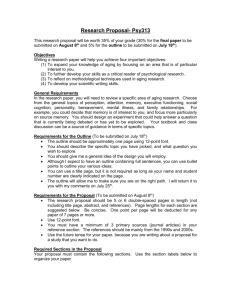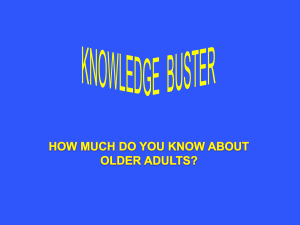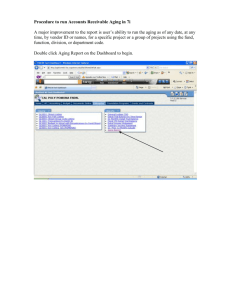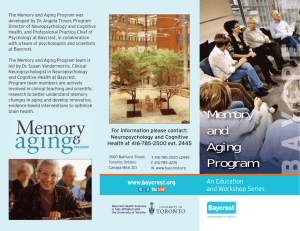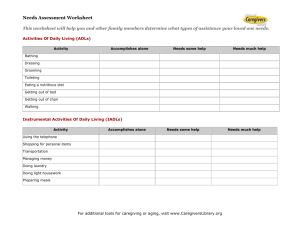June Agenda (1)
advertisement
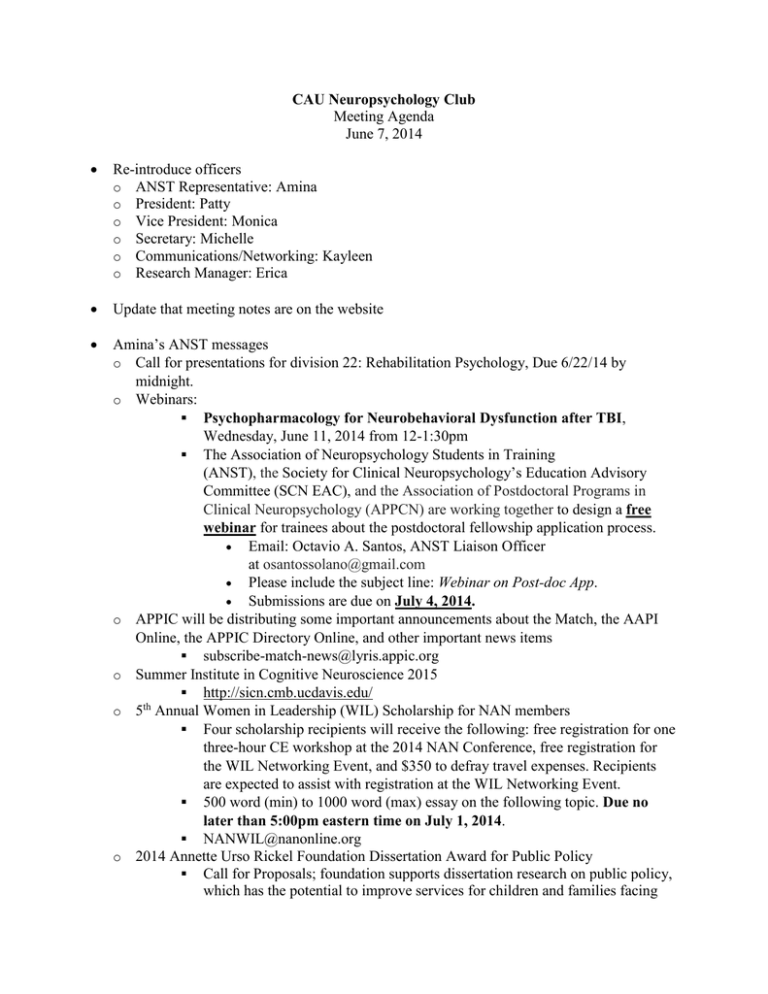
CAU Neuropsychology Club Meeting Agenda June 7, 2014 Re-introduce officers o ANST Representative: Amina o President: Patty o Vice President: Monica o Secretary: Michelle o Communications/Networking: Kayleen o Research Manager: Erica Update that meeting notes are on the website Amina’s ANST messages o Call for presentations for division 22: Rehabilitation Psychology, Due 6/22/14 by midnight. o Webinars: Psychopharmacology for Neurobehavioral Dysfunction after TBI, Wednesday, June 11, 2014 from 12-1:30pm The Association of Neuropsychology Students in Training (ANST), the Society for Clinical Neuropsychology’s Education Advisory Committee (SCN EAC), and the Association of Postdoctoral Programs in Clinical Neuropsychology (APPCN) are working together to design a free webinar for trainees about the postdoctoral fellowship application process. Email: Octavio A. Santos, ANST Liaison Officer at osantossolano@gmail.com Please include the subject line: Webinar on Post-doc App. Submissions are due on July 4, 2014. o APPIC will be distributing some important announcements about the Match, the AAPI Online, the APPIC Directory Online, and other important news items subscribe-match-news@lyris.appic.org o Summer Institute in Cognitive Neuroscience 2015 http://sicn.cmb.ucdavis.edu/ o 5th Annual Women in Leadership (WIL) Scholarship for NAN members Four scholarship recipients will receive the following: free registration for one three-hour CE workshop at the 2014 NAN Conference, free registration for the WIL Networking Event, and $350 to defray travel expenses. Recipients are expected to assist with registration at the WIL Networking Event. 500 word (min) to 1000 word (max) essay on the following topic. Due no later than 5:00pm eastern time on July 1, 2014. NANWIL@nanonline.org o 2014 Annette Urso Rickel Foundation Dissertation Award for Public Policy Call for Proposals; foundation supports dissertation research on public policy, which has the potential to improve services for children and families facing psychosocial issues such as prevention of child abuse, school programs for children with psychological issues, services for youth in the criminal justice system, healthy parenting, and math and science education, and contributing to the adoption of sound policy affecting children, youth and families. o AANC Conference (anything related to the conference will be posted to our website) APPCN Booth (Association of Postdoctoral Programs in Clinical Neuropsychology): Training directors and current trainees will be available to answer questions about the Match. Free items! AACN Student Social Thursday June 26 @ 8:30 pm Galway Pub 7 E 36th St, New York, NY 10016 o CONA (Committee on Aging) Blog written by CONA member: http://psychologybenefits.org/2014/05/23/ifyoure-ageist-and-you-know-it-raise-your-hand/. What Mental Health Providers Should Know About Working with Older Adults: http://www.apa.org/pi/aging/resources/guides/practitioners-shouldknow.aspx o A web page of APA resources related to dementia: http://www.apa.org/pi/aging/resources/dementia-efforts.aspx o Clinician Corners on age-related topics: Promoting Successful and Healthy Adult Development presented by Dr. Manfred Diehl, via live webcast on Friday, June 27th and Caregiver Family Therapy: An Integrative Intervention for Family Caregivers presented by Dr. Sara Qualls on Friday, November 7th . Pre-convention workshop at APA Conference in D.C. - What Psychologists Should Know about Working with Older Adults link. gradpsychblog.org (share on screen if possible) o discuss latest blog on publication writing FPA hosting: Basic Training in the Interdisciplinary Team Model of Collaborative Practice o 8/15-16; 9-5 @ Barry o engage in discussion on collaborative practice Supervision articles o Discussion on supervision FPA student poster presentation contest o Conference: 7/17-20 Try to get a group to join Caregiver Family Therapy: An Integrative Intervention for Family Caregivers o Live-webcast - November 7, 2014, 1-4 pm o Oftentimes, caregivers experience increased burden and distress while the care recipient struggles to adapt. This impact reverberates throughout the family. Psychologists can help families address the challenges and opportunities of caregiving, and navigate the transitions. CFT offers a systemic approach to intervention that integrates many evidence based approaches within a structured model. Clinicians use key questions to help families to tailor interventions that guide families through difficult decisions, changes in roles, and more effectiveness within the healthcare system. Clinical cases are used throughout this workshop to illustrate the tools and strategies that help family systems adapt. Learning Objective 1 Describe how stages of caregiving influence focus of assessment and intervention. Learning Objective 2 Discuss how the CFT model guides families to address caregiving challenges. Learning Objective 3 Identify strategies that can change in families that are stuck. Presenter: Sara Honn Qualls, PhD Promoting Successful and Healthy Adult Development and Aging, Live-webcast - June 27, 2014, 1-4 pm ET o This workshop will focus on what clinicians should know about the promotion of successful and healthy adult development and aging. Because clinicians are in their dayto-day work mostly exposed to the “dark side” of the human aging process, the workshop will highlight that the majority of adults actually grow old without major physical or psychological impairments. In terms of optimizing successful and healthy aging, the workshop will focus on three major behavioral domains: (1) physical activity and its effect on physical and cognitive health; (2) cognitive abilities and the role of engagement in the maintenance of cognitive functioning; and (3) social/interpersonal relationships and their relevance for health and well-being. Learning Objective 1 Identify the key concepts of adult development and aging. Learning Objective 2 Identify the main empirical findings in the physical health, cognitive health, and psychosocial domain showing that successful and healthy aging can be achieved. Learning Objective 3 Explain how to incorporate the key elements from the workshop into their clinical work. Presenter: Manfred Diehl, PhD Psychologybenefits.org o Discuss latest article on ageism Trivia question of the day: where is the CSF secreted/produced? (choroid plexus) o Winner gets free magazine and bragging rights NAMI walk Discuss article o Erica discusses article o Assign discussant for next meeting Tips for future meetings o Have supervisors come and talk o Volunteer work o Movie night o Trivia night o Mentoring potluck Freebies! o http://www.dana.org/BAW/content.aspx?id=44679 o http://faculty.washington.edu/chudler/experi.html
